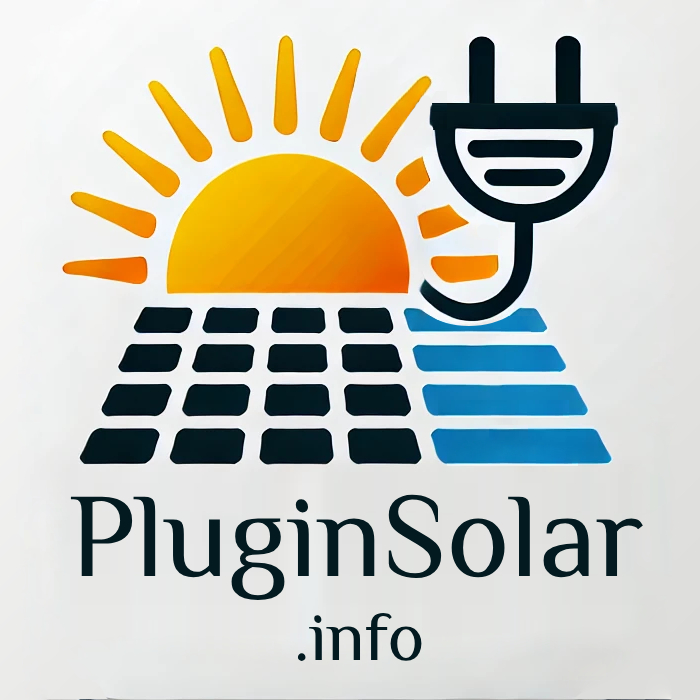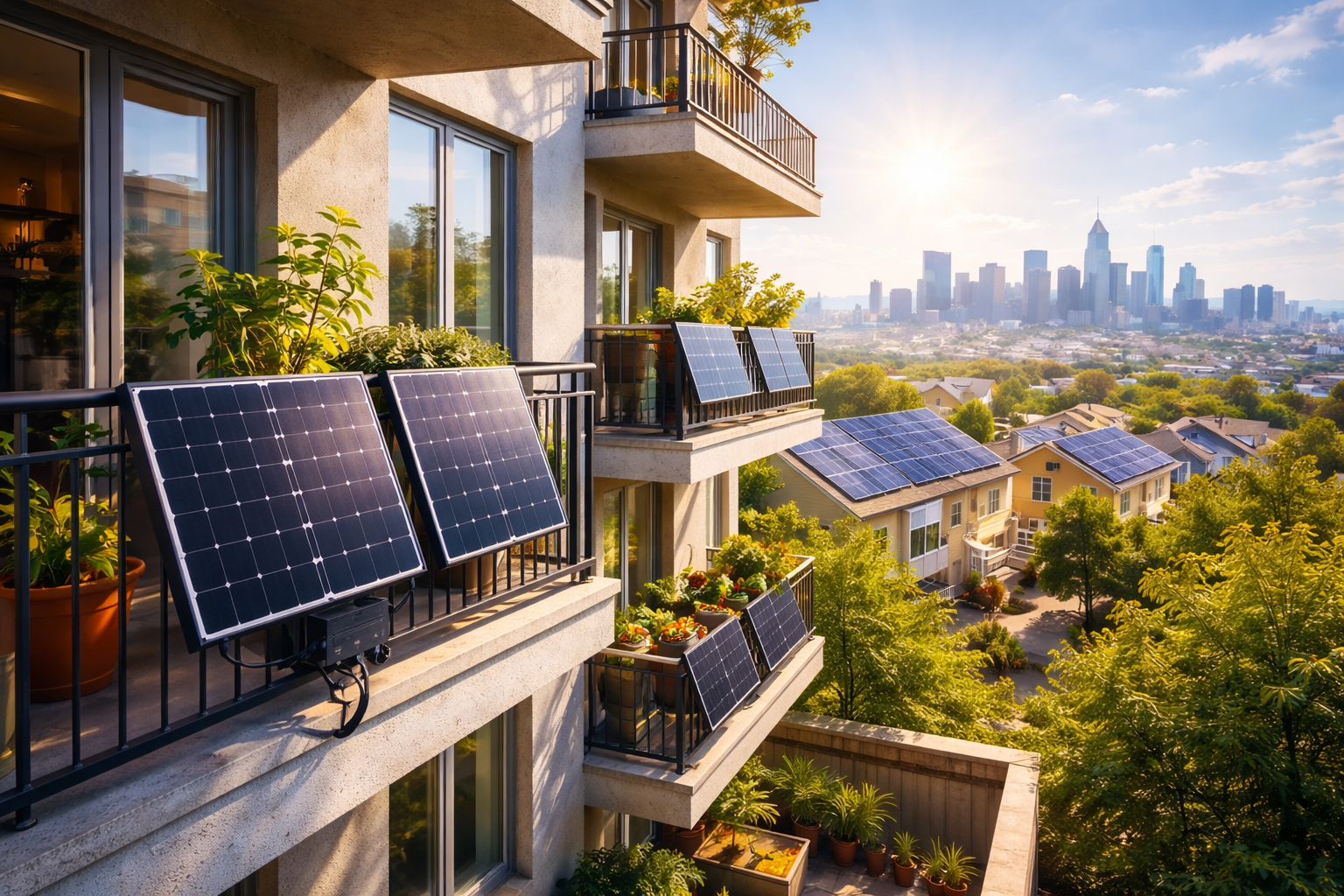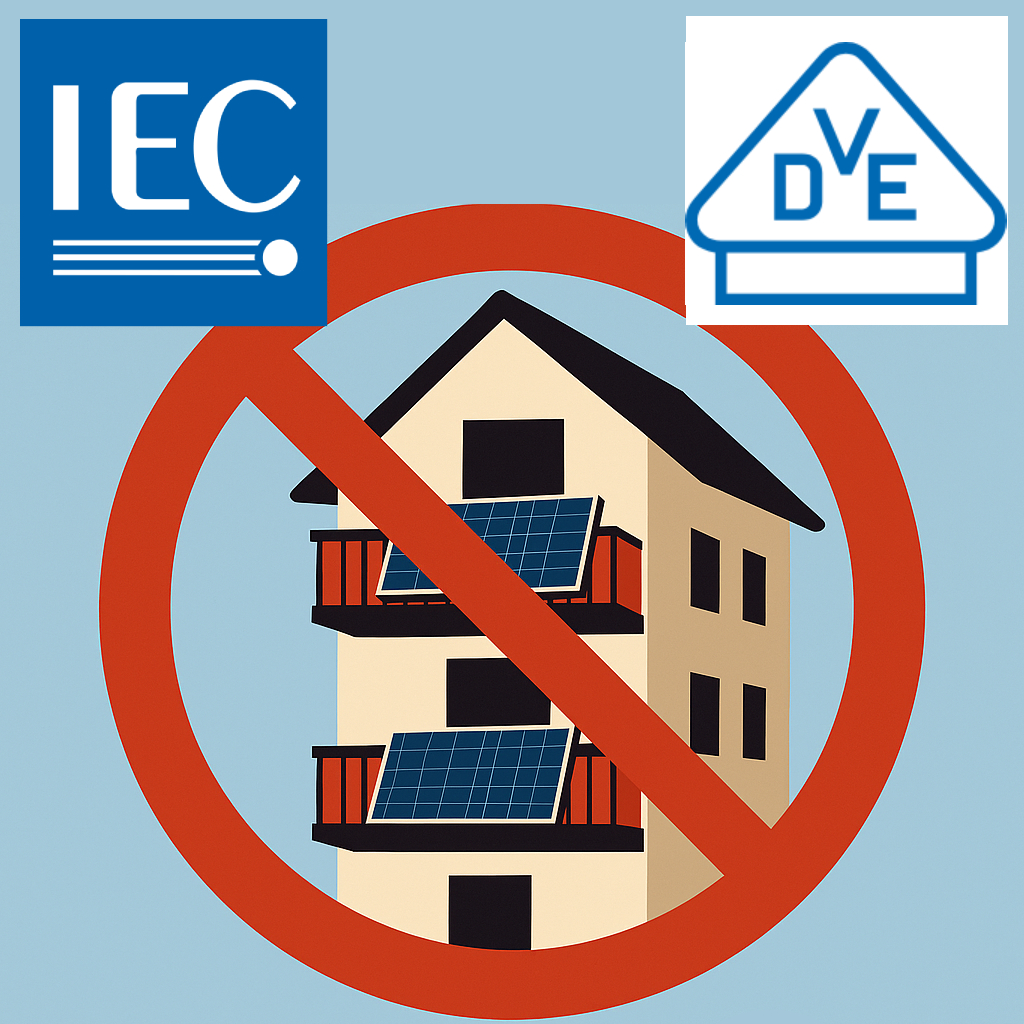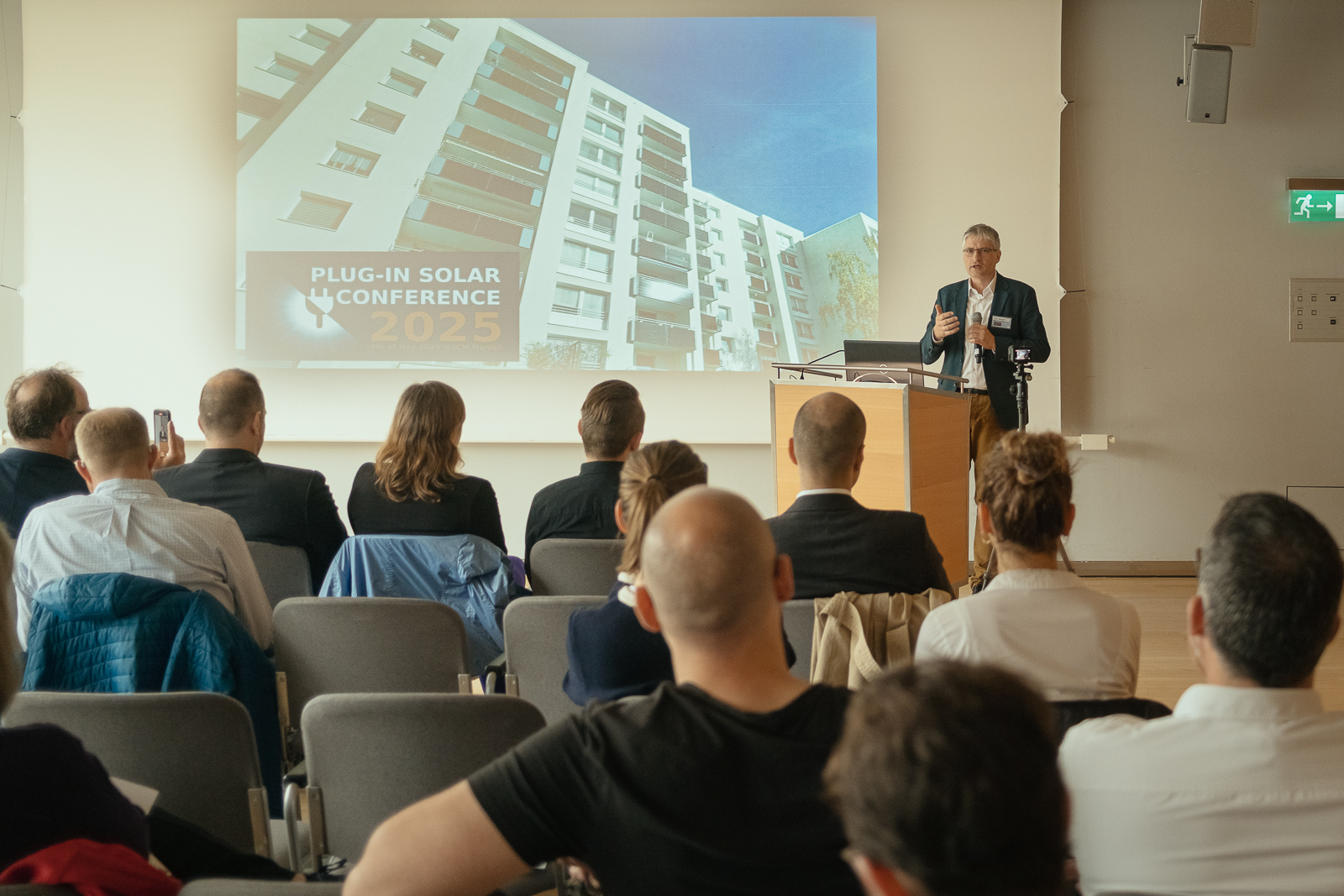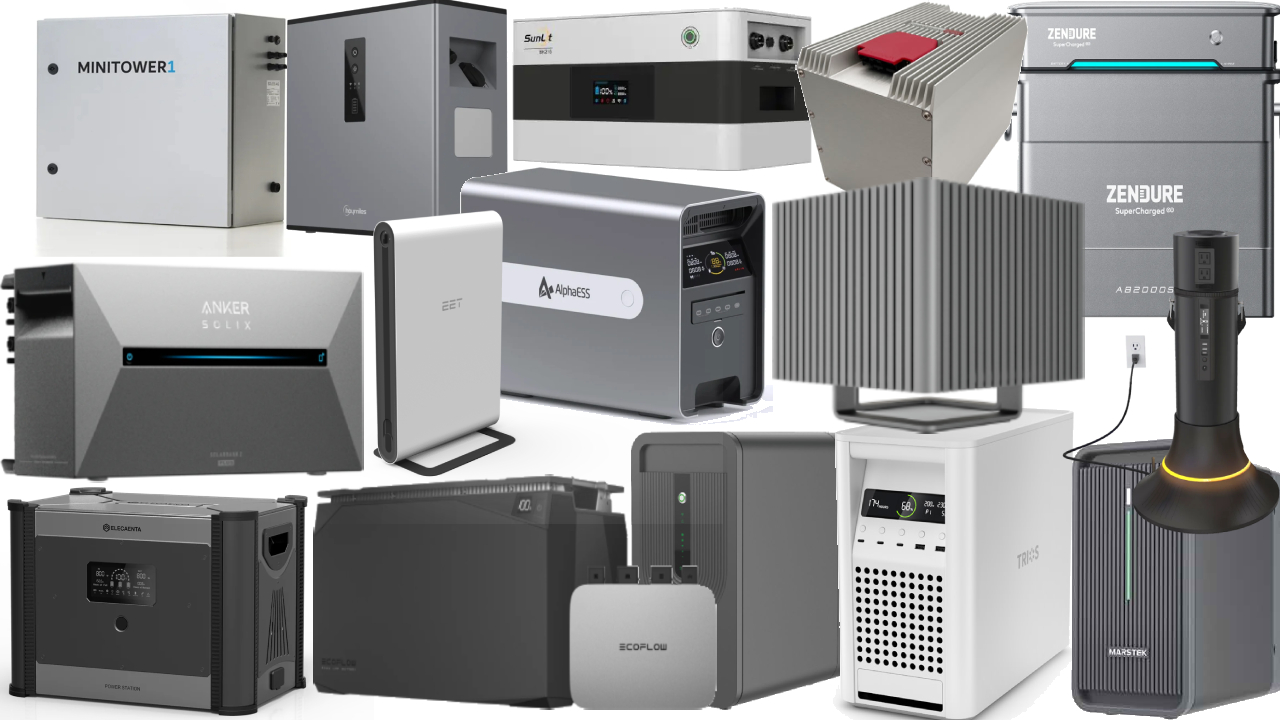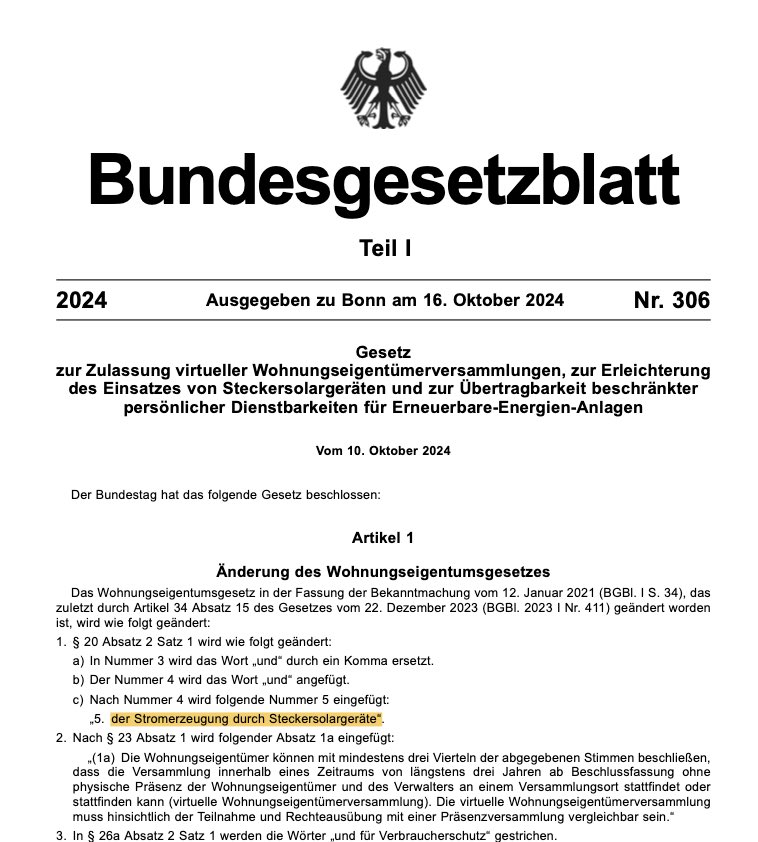
With a new law privileging plug-in solar devices in rental and owner-occupied apartments, the “Right to Solar”, German law makes have set a milestone towards a broader participation of citizens in the energy transition. This step also marks the complete success of a ‘balcony solar petition’ to the German federal government from last year. However, there are still points that need clarification.
After the German parliament paved the way for the privileging of plug-in solar devices in rental and owner-occupied apartments in recent weeks, the corresponding “Law for the Approval of Virtual Homeowner Meetings, the Facilitation of Plug-in Solar Devices, and the Transferability of Limited Personal Easements for Renewable Energy Systems” was published on Wednesday, Oct. 16th 2024 and is now valid.
This legal change contributes to the reduction of bureaucracy and thus creates new freedoms for citizens to participate constructively and cost-effectively in the energy transition. It also allows companies to create new innovative products and value-added models. With this spring’s debureaucratization bundle ‘Solar Package 1’ and the now valid ‘Right to Plug-In Solar’, Germany can further expand its position as a world leader in the use of plug-in solar devices. The petitioners as well as representatives of the growing plug-in solar industry are thrilled but also expect more work ahead to bring the new paradigm into full effect.
“With the legal change, the number of potentially active participants in the energy transition will be doubled in one go. Renters and homeowners were previously largely excluded from generating and using their own energy. This is finally changing now. The privileging of plug-in solar devices effectively reverses the burden of proof, so that balcony power plants are now generally allowed and can only be rejected for justified reasons.”
Sebastian Müller, Balcony Solar e.V. / AG Balcony Power Plant
“The companies active in the plug-in solar sector have invested heavily in recent years and demonstrated great innovation. With the deregulation, which can be achieved through the reduction of bureaucracy, the foundation for further growth in the sector is laid.”
Christian Ofenheusle, EmpowerSource UG / Federal Association for Plug-in Solar e.V. (in formation)
“In consultations, events, and workshops on the subject of plug-in solar, it has become increasingly clear over the past 1.5 years that many people are closely following the implementation of this project. This right simply symbolizes pragmatic and socially thoughtful energy transition policy in action. It is good that the right to balcony solar is now coming into force; many have waited too long for this.”
Lisa Wendzich, SunCrafter GmbH / AG Balcony Power Plant
“It is right and important that the privileging now applies. However, the law leaves open which reasons are sufficient for rejection. The Ministry of Justice, which drafted the law, must urgently follow up and publish guidelines for the judiciary. Otherwise, a wave of lawsuits is foreseeable. The AG Balcony Power Plant had already published extensive proposals on this, which have not yet been implemented. These must now be addressed at the latest.”
Dr. Andreas Schmitz, Akkudoktor.net / AG Balcony Power Plant
Unfortunately, the legislature did not follow the advice of the experts from the hearings on the law, which included a representative of the AG Balcony Power Plant, as well as the Environment and Economic Committee of the Bundesrat. Among other things, they called for larger solar systems and storage units to be included in the privileged measures. Given the rapidly increasing usage of plug-in home storage systems and new technologies for their grid-friendly operation, the joint use of renewable energy (GGV, energy sharing), and the safe connection of higher PV outputs by laypeople, this needs to be addressed urgently.
Finally, the question of the permissible maximum output and the type of connection remains unresolved. While the legislative proposals set limits of 800 watts for the inverter and 2,000 watts for the solar modules, the draft version of a VDE product standard for plug-in solar devices, which is about to be published, currently foresees a lower module output. The permissibility of connecting with the common and proven protective contact plug (so-called Schuko plug) is also still under discussion. Furthermore, the current draft of the low-voltage directive VDE AR-N-4105 imposes additional hurdles for plug-in storage. The legislature should push for a timely harmonization of the regulations to remove the remaining bureaucratic barriers and fully unlock the potential for low-threshold participation of all citizens in the energy transition.
AG Balcony Power Plant
Andreas Schmitz, Scientist and YouTuber (@Akkudoktor)
Christian Ofenheusle, Managing Director EmpowerSource
Sebastian Müller, Chairman BalconySolar e.V.
Craig Morris, Chairman Climate Protection in the Bundestag e.V.
Dr. Benedikt Sauer, Scientist and YouTuber (@DrBene)
Simone Herpich, Chairwoman Balcony.Solar e.V.
Jörg Lange, Climate Protection in the Bundestag e.V.
Marco Larousse, EigenEnergieWende.de
Lisa Wendzich, SunCrafter
Federal Association for Plug-in Solar e.V. (in formation)
